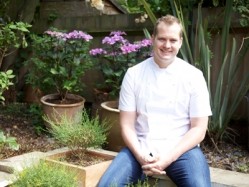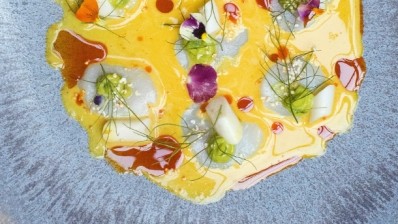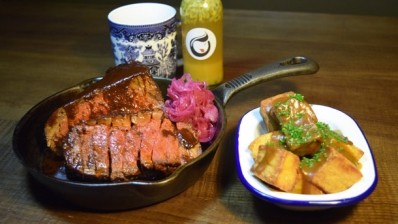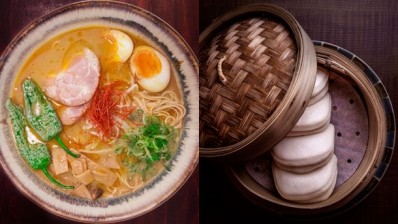Ross Shonhan: Career Profile

How I got to where I am now
I grew up out in the bush; in the middle of nowhere, where there wasn’t even a restaurant.
I started as a dishwasher in a butchers shop in Australia when I was 15. I used to go five days a week after school to clean the butchers shop which was a fun job. And on Saturday I got to work with the butchers and make sausages and then I’d clean the shop in the afternoon.
I finished high school and started university and needed an excuse to get out. I was in Brisbane and I started calling restaurants, asking them ‘how do you be a chef’ and they told me to do an apprenticeship. So I went to the job centre and went through an apprenticeship in Australia.
I realised I could use my apprenticeship to travel and came over to England 11 years ago. I worked at Asia de Cuba and then at The Dorchester and then my VISA was up and I had to leave. So I moved to America and opened a couple of restaurants including Nobu in Dallas.
And I was then headhunted to come back and be the head chef of Zuma five years ago.
My biggest challenge:
Going from a kitchen like the Dorchester to working with an entire kitchen full of 40 Mexican immigrants in the US – that was one challenge.
Opening Nobu Dallas, thinking I knew a bit about Japanese food but ultimately not having a clue – that was another one. It was a hell of a lot of learning and stress to get that going.
Two weeks into opening, my father passed away and then four weeks after that my grandmother passed away. All I could do at that point was work and put 120 hours a week into the kitchen, which I did.
One of the hardest things was coming back to the UK, taking over a busy restaurant like Zuma, and trying to implement what were quite major changes. I completely changed that kitchen into being able to produce a lot more volume at a much better quality.
Going into a successful restaurant and telling people they’re getting it wrong and there’s a better way we can do things, is harder.
My Greatest achievement:
Turning things around at Zuma was a great achievement. But an even bigger achievement lies in the fact that two of my sous chefs are now head chefs of Nobu restaurants around the world. Two of my sous chefs have become the head chef of Zuma London, and the other is the head chef of Roka London.
I had a dishwasher in Nobu Dallas who I helped train and mentor and he’s now a sushi chef in Mexico City. So many of the chefs that were with me at Zuma started with no experience at all. And I take a massive amount of pride in helping to change people’s lives in some way; giving the skills they need to progress and teaching them. If they can be bothered to get out of bed, I can teach them.
My obsession with Japanese cuisine...
I’ve had an obsession with ramen for years and I’ve always wanted to open a ramen shop and I just thought it would come after I did other things. Even after 17 or 18 years, I still don’t know anything about Japanese cuisine - I could spend an entire lifetime just studying it and still know nothing.
What I love about restaurants:
Where do I start?
I couldn’t imagine doing anything else. I love a busy restaurant, that instant gratification that we can get in hospitality. You serve a great plate of food and give good service, you can watch your customers enjoying it. You also instantly see the results of your work, which is a big motivator.
What I don’t like…
I don’t like that it’s so hard to find people who want to work in this industry. Today’s generation need to be taught that if you want something then you need to work for it, you’re not owed anything.
The Government shouldn’t make it so easy to sit back and be unemployed, especially when you’re young. I don’t think our industry’s good at letting people realise the potential of the business. If you grew up in a busy council estate in London, there’s no reason why you can’t be earning 50 or 60 grand 10 years later. But you’d have to work bloody hard to get there.
The horror stories of hospitality are told and people are put off.
I don’t have an issue with the work hours though It does affect your social and personal life but I think you learn to adapt. That’s probably why all of my friends work in this industry.
My advice for a young entrepreneur...
Work hard, keep your eyes and ears open and take notes. Read food media and cookbooks and apply yourself. I didn’t go to my first music concert until I was 25, because I was too scared to ask for a night off. But that’s not unlike a lot of other industries. If you’re prepared to put a sacrifice in, then you will be rewarded in the end.

















